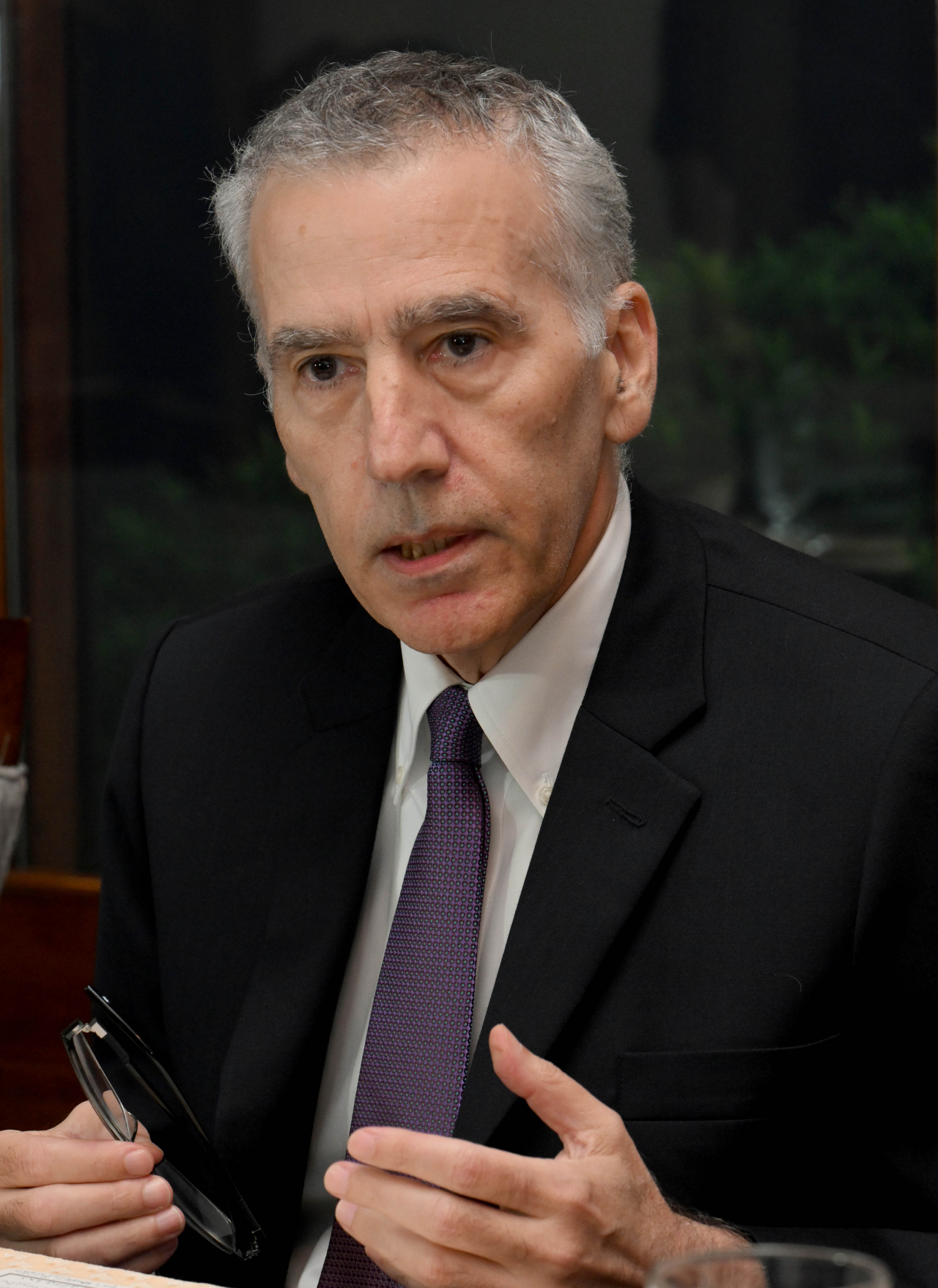US envoy affirms value of Camp David pledge, addresses concerns
By Choi Si-youngPublished : Aug. 23, 2023 - 19:10

The commitment to joint action on common security threats that South Korea, the US and Japan signed at a Camp David summit Friday is a political agreement rather than a legally binding pact, US Ambassador to South Korea Philip Goldberg said Wednesday.
The security pledge, the first of its kind, has sparked concern over deeper security links between Seoul and Tokyo, two American allies that have separate defense treaties with Washington. A potential military alliance with Japan worries South Korea because it could revive what Seoul considers Tokyo’s past militarism without having seen enough efforts to atone for its wartime wrongs.
“It’s rather a cooperative and collaborative step so that the leaders and other members of the government have the ability to interact, when there are common threats and provocations that affect the three countries,” Goldberg said in a joint media interview. “So you can think of it more as a political agreement than a legally binding agreement.”
The top US envoy added that what the three countries agreed on at Camp David is not meant to corner China. The summit openly condemned China’s “dangerous and aggressive behavior” in the South China Sea, reaffirming peace and stability across the Taiwan Strait. Washington supports the self-ruled democratic island Beijing calls its own.
Embracing freedom of navigation and opposing economic coercion are “important issues and principles of international law,” according to Goldberg.
Goldberg urged China to help bring back North Korea to stalled nuclear talks. North Korea demands the US drop what it says its anti-North Korea policy as a precondition to resume talks, the last of which took place between them in October 2019. The negotiations fell apart because Pyongyang demanded sanctions relief, while Washington sought disarmament.
“The door is very much open to negotiations. If the Democratic People’s Republic of Korea so chooses and we hope and that China will urge the DPRK to return to negotiations,” Goldberg said, referring to North Korea by its official name.
The US envoy also addressed Japan’s plan to release wastewater from the destroyed Fukushima nuclear plant, which is set to start Thursday. A tsunami crippled the plant 2011 and since then the Japanese government has been preparing to decommission it. The first step is discharging wastewater into the Pacific Ocean in stages after removing most of radioactive elements. Pacific island nations have raised concerns over health risks.
“As for Fukushima, I think that our position -- the US and Korea’s -- align,” Goldberg said, adding, “We’re satisfied that Japan has followed the internationally accepted scientific process for the release of the Fukushima water.”
Seoul has essentially approved Tokyo’s plans to discharge the wastewater into the Pacific Ocean, after the International Atomic Energy Agency, the United Nations nuclear watchdog, called the impact on people and the environment “negligible.”
Goldberg added that South Korean President Yoon Suk Yeol’s decision to put historical disputes with Japan behind has been instrumental in bolstering three-way ties. The March deal Yoon announced has led to the resumption of “shuttle diplomacy” or leaders’ regular visits to each other’s countries, ending a 12-year hiatus.
By Choi Si-young and Joint Press Corps




![[Music in drama] Rekindle a love that slipped through your fingers](http://res.heraldm.com/phpwas/restmb_idxmake.php?idx=644&simg=/content/image/2024/05/01/20240501050484_0.jpg&u=20240501151646)


![[New faces of Assembly] Architect behind ‘audacious initiative’ believes in denuclearized North Korea](http://res.heraldm.com/phpwas/restmb_idxmake.php?idx=644&simg=/content/image/2024/05/01/20240501050627_0.jpg&u=20240502093000)











![[Today’s K-pop] Stray Kids go gold in US with ‘Maniac’](http://res.heraldm.com/phpwas/restmb_idxmake.php?idx=642&simg=/content/image/2024/05/02/20240502050771_0.jpg&u=)